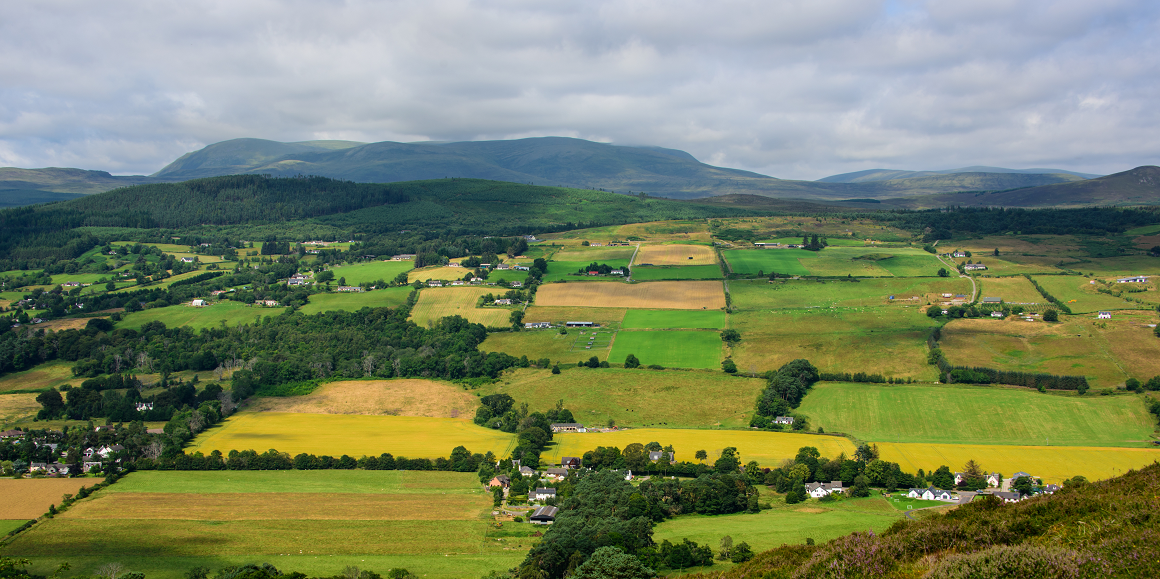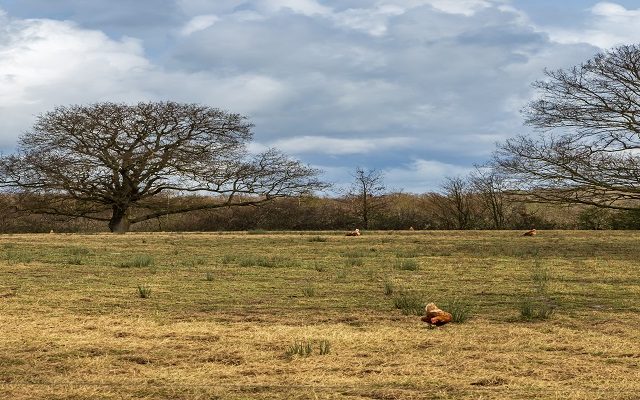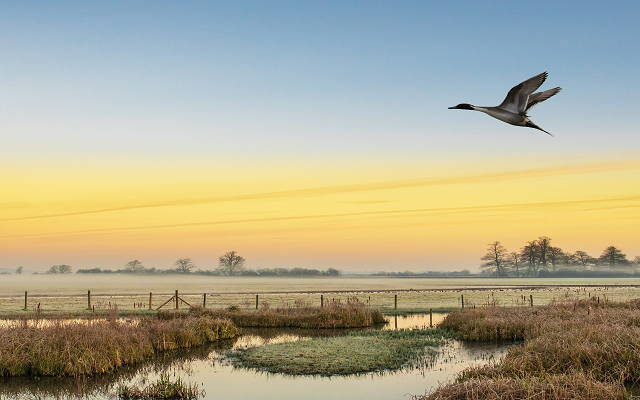Land Business Update | Week Commencing 16th October 2023
Welcome to our fortnightly update on key land management, farming, planning, forestry, environmental and energy issues.
Farming
Agriculture and Rural Communities (Scotland) Bill starts parliamentary process
This Bill, which is expected to be passed in 2024, provides the new framework for support for Scotland’s new farming and rural policies. The main elements of this Bill which enables the Government to make Scotland-specific policy are:
- It gives the Scottish Government the power to develop its own schemes and support framework (and to change existing Common Agricultural Policy (CAP) legislation).
- The Government is required to produce a five year Rural Support Plan, which includes the details of all support schemes.
- It allows the Government to introduce training requirements for farmers and other workers.
Clause 1 is an important one. It sets out, in broad terms, the objectives of agricultural policy, which are: the adoption and use of sustainable and regenerative agricultural practices; the production of high-quality food; the facilitation of on-farm nature restoration and climate mitigation and adaptation; and enabling rural communities to thrive.
The Bill should be considered in the wider context of the Government’s legislative programme and strategy. It plans to publish a land reform bill by the end of the year and to continue to use its Agriculture Reform Route Map to set out what information and guidance the sector can expect between 2023 – 2025. Please speak to Mary Munro, our Head of Farming in Scotland, if you would like to discuss it.
Slurry grant scheme now open in England
This second round of the Slurry Infrastructure Fund is open for any farmer in England whose farming systems already produce slurry to improve or expand their slurry storage capacity. Farmers are required to have at least six months of storage for beef and dairy animals and eight months for pigs. The grant can fund reception pits, slurry pumps and agitators and, new for this round, slurry separators. You can use the Slurry Wizard to help you find out more about your current and future slurry storage requirements, before submitting an online application. The maximum grant is £250,000 and the minimum £25,000. Full guidance is available here and please contact Alice Johnson if you would like help with submitting an application.
Farming for the future website for the Sustainable Farming Incentive
This new Defra website, which is dedicated to the scheme, is meant to be more user friendly than the GOV.UK website, and make it easier for farmers and landowners to navigate guidance notes and put suitable schemes together to fit their farms. If you would like advice on putting together an SFI application, please contact Abbie Allen in our farming team.
Farm Innovation Grant from Anglian Water
Farmers located in one of the priority catchments in Anglian Water’s area are being invited to submit proposals on how they can protect water from pesticides, nutrients or soil erosion on their holding. There are no set options or payments, so applications are assessed on their merits, with a maximum grant of £7,500 per holding. Successful previous bids have included direct drills, strip till cultivators, precision fertiliser trials and water bowsers with integrated drinking troughs.
Environment
UK progress on meeting its commitments under the UN Biodiversity Treaty
The Treaty, signed in 2022, is intended to halt nature loss this decade and bring about restoration at an unprecedented scale. The government has said that it has not conducted its own assessment of progress, and so has been criticised by conservation organisations.
Forestry
Woodland Carbon Code and Peatland Code carbon price data published
The average price of woodland units has increased to £25 / tonne in the first half of 2023 from £15 in 2021, with a spread between the highest and lowest price of £37.50 / unit. For peatland units, the average price was £24 in 2022, with a high to low spread of £25 / unit. NB The majority of woodland and all peatland units are pending issuance units (PIUs), not verified credits. The trade data was collected from market participants who are project developers and resellers through the Ecosystem Marketplace Global Carbon Markets Hub. It is based on 684 transactions and includes just over 200,000 woodland PIUs in 2022 and 11,000 peatland ones.
Rural economy, planning & property
Hunting With Dogs Scotland Act 2023 comes into effect
This Act, which was passed in March, came into effect on 2nd October. It changes the law on using or allowing more than two dogs to hunt wild mammals (including rabbits), which is now a criminal offence, unless allowed by a lawful exception within the Act. The exceptions are use of a dog: to manage wild mammals above ground; to manage foxes below ground; in connection with falconry, game shooting and deer stalking; to relieve the suffering of injured wild mammals; to search for dead wild mammals; and in connection with an environmental benefit scheme. The exceptions are subject to a variety of conditions which must be met and some are subject to a licensing system, administered by NatureScot. The Act also includes clauses on trail hunting. The Countryside Alliance considers the guidance associated with the Act to be unlawful in certain respects and is seeking legal advice on it.
Great British Insulation Scheme
This £1bn scheme for roof, loft or cavity wall insulation is available to households in lower council tax bands (A-D in England, and A-E in Scotland and Wales) and with less energy-efficient homes (Energy Performance Certificate rating of D or below). There is an eligibility checker that households can use. The government says that the improved insulation could cut an energy bill by an average of £300 – 400 a year.
It is in addition to the existing Energy Company Obligation (ECO) scheme, which offers free home energy efficiency improvements, such as insulation, heat pumps and solar panels to families on low incomes. There is also a separate Home Upgrade Grant for off-the-gas-grid homes that have an EPC rating of D or below and a household income of £31,000 a year or less, than funds similar items.
The Great British Insulation Scheme is part of the package of measures on net zero announced by Rishi Sunak in mid-September. It is unclear how many years the £1bn budget will cover. It appears to be a partial replacement of the Green Homes Grant, which was launched in 2019 and aimed to help 600,000 households; it was scrapped in 2021 as critics claimed that the scheme was difficult to apply for and the administration of grants chaotic.
Why is social value important for land and property?
There is increasing evidence that land and property can deliver significant benefits to their local communities and to society as a whole. It can increase social connections and improve people’s quality of life. There are also benefits for the property’s owners – rental yields are higher (by 16-25%) on assets that have strong social and environmental credentials, and investors are more interested in assets with ESG credentials. 75% of workers want their employers to make a positive contribution to society. Please see our briefing note on this on the Rural Hub.
Over 25% of Biodiversity Net Gain units are at risk of non-compliance, says study
On-site biodiversity habitat improvements to meet BNG requirements are unlikely to deliver successful increases in biodiversity, according to a study by The University of Oxford that looked at data for six local authorities that adopted BNG rules ahead of their legislative introduction. It found that more than 90% of BNG units were delivered on-site and that 27% of those units are at risk of leading to no tangible increase in biodiversity. This is in part as monitoring is unlikely to be done to a suitable standard due to a lack of quality control guidance, there being no standardised approach to monitoring BNG delivery and local authorities having limited options for enforcement.






